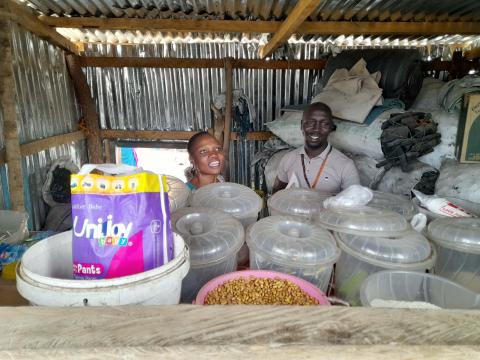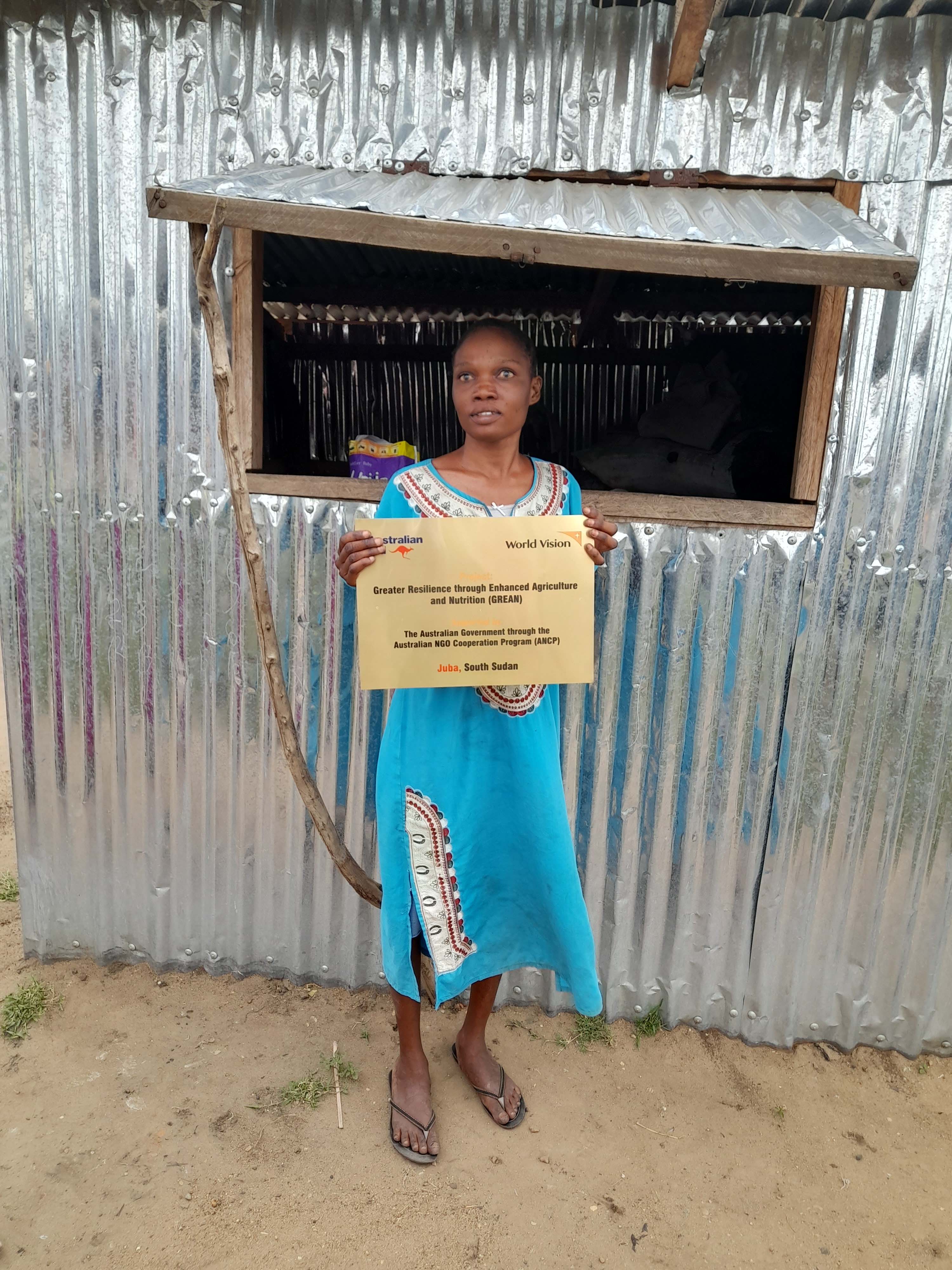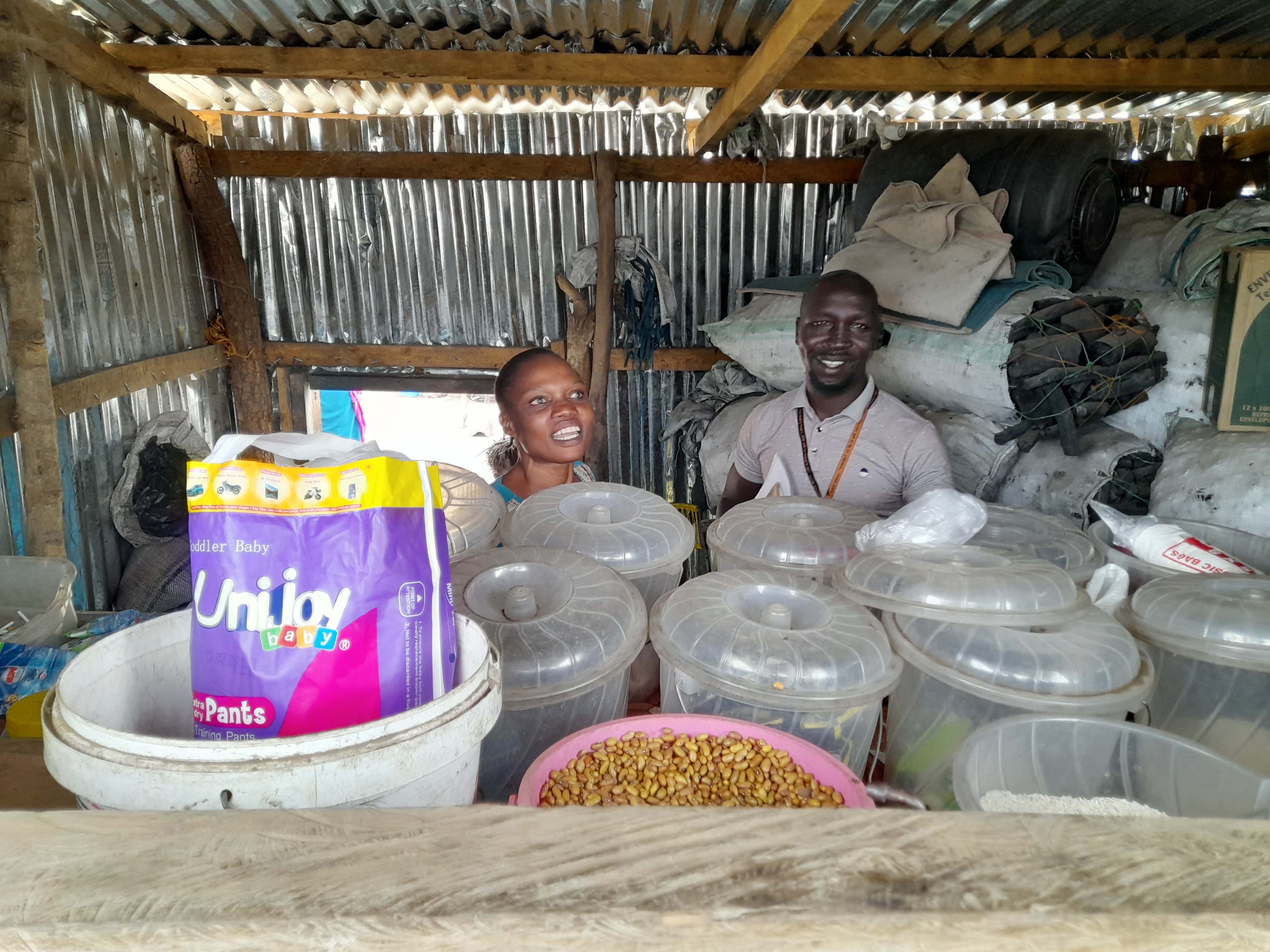Empowered Agnes: No limits for a woman living without sight in South Sudan

Losing eyesight is not a deterrent to living a life full of possibilities. Here is the story of Agnes, a young woman who relentlessly pursues her dream of becoming a businesswoman and a stable provider for her family despite being vision-impaired.
Agnes Gune, 25, lives in a community in the outskirt of Juba City. She lost her eyesight because she was exposed to Antonov explosives when she was 14.
Living without sight for over a decade has taught Agnes to live a life full of possibilities. She did not let her condition deter her from pursuing her dream of becoming a businesswoman and a stable provider for her family.
At a young age, Agnes learned to cope with her condition as she was also interested in starting her own business. She was always eager to overcome her limitations and find opportunities to earn an income to help support her family of seven. She lives with her mom and her siblings.
“I used to brew local alcohol to earn a living,” she said. Admittedly, the money she earned from brewing alcohol was not enough to sustain the needs of her family. But this did not discourage her from finding other means to earn.
Agnes’ determination paid off when she joined the Greater Resilience through Enhanced Agriculture and Nutrition (GREAN) Project. She was one of the ten project participants with a disability. Thanks to Jada Sebit, a World Vision volunteer seconded by the Department of Agriculture to support Agnes’ community.

The project helped her start a small store selling general merchandise in her community. “I received sugar, flour, cooking oil, onions, bars of soap, rice, wheat flour, and beans in June 2022,” she recalled. She set up her store next to their home to make it more manageable and accessible for her.
And that marked the start of her flourishing business.
“I have managed to purchase more items within a year, and this has increased my stock since the market within the area for basic food items is good. My business has greatly expanded,” said Agnes, “This has improved my capital and revenues. I was able to buy and expand my business with more items such as charcoal, lentils, spaghetti, candles, and fresh juice, among others.” She was able to gain SSP 150,000 ($250) as revenues from her business.
Interestingly, through her commitment, Agnes participates in one of her area's Savings for Transformation (S4Ts) groups. “I contribute SSP 5,000 ($5) per week. I joined this group to save my profits,” she said.
To date, Agnes uses part of her earnings to support her family's basic needs, such as paying five of her siblings’ school fees.
“I plan to expand my business from a retail to a wholesale business. I have identified a strategic location next to the town center. My younger brother will manage the first business independently and use the profits to support and provide for our family needs,” she added.
Agnes also shared that running a business was not easy for her. She had to learn how to deal with many challenges, such as customers taking advantage of her vulnerability and ending up taking many items free, others taking items on credit and never getting to pay their dues, and rising prices of goods due to inflation that makes it harder for her to run her business.

Despite all the challenges, Agnes expressed gratitude for World Vision's support to vulnerable people like her. She also urged World Vision to continue supporting vulnerable people, which will help transform their lives and make them more resourceful to their families and communities.
“My life is far, much better than before. I am independent, and I don’t seek financial support from people since the income from my shop has sustained my life and the needs of the family,” said Agnes.
According to Sarah Foni, GREAN Project Manager, the GREAN Project has supported at least 80 people living with disabilities in both Juba and Tonj North areas. “The project empowers vulnerable people with economic stability and alternative sources of livelihood. We aim to ensure inclusion and diversity in our World Vision South Sudan programming.” The GREAN Project is funded by Australian Aid.
Story by Gerald Yengi, World Vision South Sudan Monitoring & Evaluation Officer for the GREAN Project